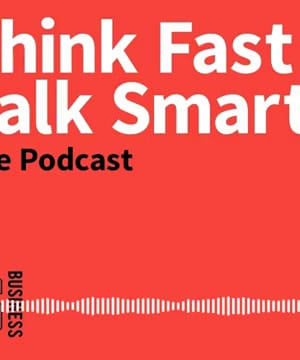How to change behavior?
Sources:
Changing behavior involves understanding and applying several key principles, as discussed by various experts across different podcasts. Here are some major insights:
-
Systems and Structures:
- Katy Milkman emphasizes the importance of changing systems and structures to support new behaviors. She suggests advocating for fair processes in hiring, promotion, and training to create environments that facilitate behavior change more effectively than solely focusing on personal mindset shifts 1.
-
Practical Application:
- Henry Cloud highlights that knowledge alone is insufficient for behavior change. He uses the analogy of learning to play golf—practical application and consistent practice are critical. People often mistake knowledge for action and fail to implement actionable steps to change behavior 2.
-
Combining Thoughts and Actions:
- Leila Hormozi advises reinforcing new thoughts with immediate actions to solidify behavior change. When breaking old habits, it’s critical to disrupt the link between old thoughts and behaviors. Conversely, forming new habits involves fusing new, positive thoughts with corresponding actions promptly 3.
-
Self-Understanding and Compassion:
- Sal Di Stefano from Mind Pump stresses understanding the root of behaviors and having compassion for oneself. This self-understanding creates a foundation for more effective and lasting behavior change 4.
-
Social Support and Accountability:
- Gina Merchant points out that surrounding oneself with supportive communities and accountability partners is crucial. This social environment can significantly influence the success of behavior change efforts by providing encouragement and practical support 5.
-
Setting Realistic Goals:
- BJ Fogg explains that setting low, achievable goals is key to reducing the reliance on high motivation. This approach helps in forming habits more easily and ensures that behavior change is sustainable 6.
-
Specificity in Behavioral Goals:
- BJ Fogg also suggests being very specific about the desired behavior change. For instance, instead of a vague goal like "reading more," identify a specific book to read and place it visibly to serve as a prompt. Detailed action plans and visible cues can significantly aid in establishing new habits 7.
-
Meaningful Changes:
- Hal Elrod advocates for focusing on small, meaningful changes rather than overwhelming oneself with numerous ideas. Implementing even a singular actionable insight from a book can lead to substantial life changes 8.
By understanding and applying these principles, behavior change becomes a structured process that combines practical actions, supportive environments, and specific goal-setting.
RELATED QUESTIONS-



